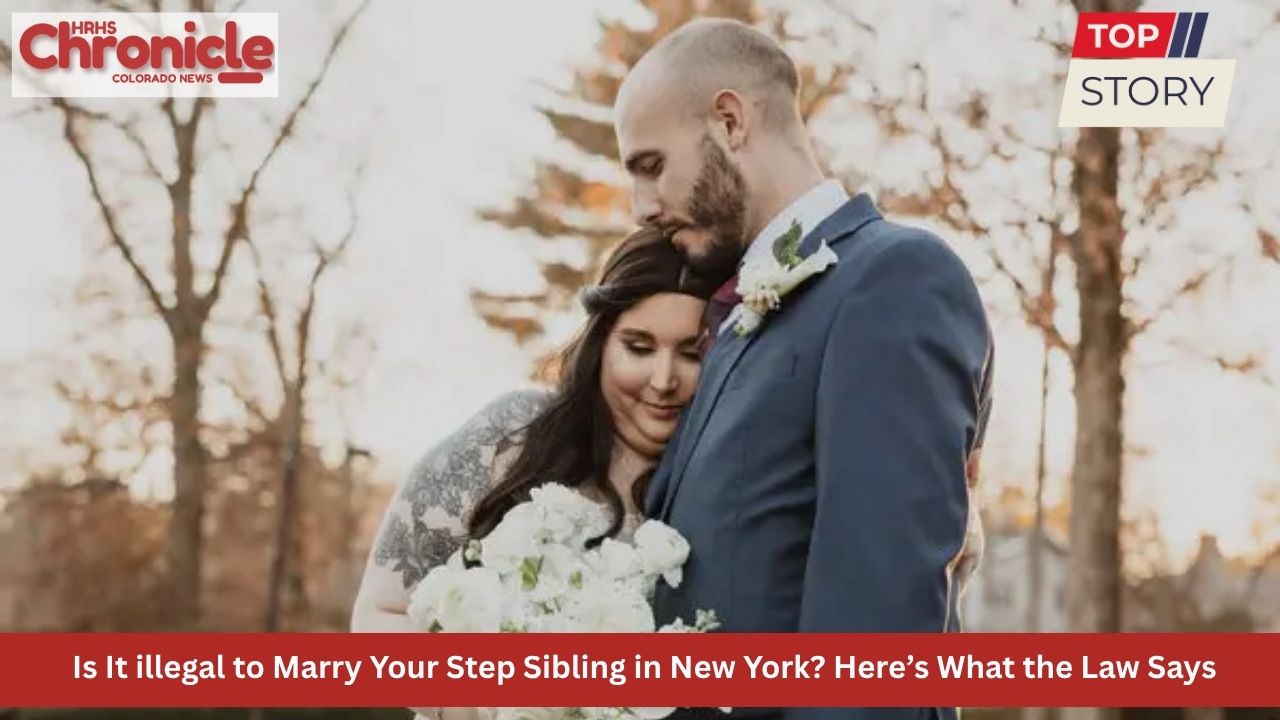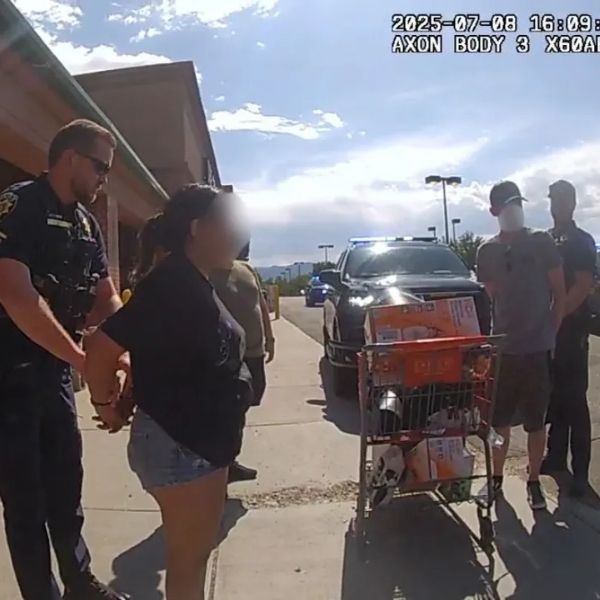The idea of step-siblings marrying each other brings up questions about modern family structures and the boundaries set by law. In New York, diverse cities such as New York City, Buffalo, Albany, Rochester, and Syracuse feature a wide variety of blended families. With divorce, remarriage, and stepfamilies becoming increasingly common in urban and suburban communities, it’s important to clarify what the law says about such relationships to avoid confusion and ensure compliance with state regulations.
Defining Step-Siblings in Legal Terms
A step-sibling is the child of your stepparent, meaning there is no biological connection between you and your step-sibling. For example, if your mother marries another man who has children from a previous marriage, those children become your step-siblings. In the eyes of the law, this relationship is rooted in marriage, not blood.
Marriage laws, particularly those concerning familial relationships, are mainly focused on preventing unions between individuals who share a direct biological relationship or are closely related by blood. This approach is taken to avoid potential genetic risks in offspring and uphold particular social norms.
The New York Legal Landscape on Marriage
New York state law has clear restrictions on who can marry. According to the Domestic Relations Law, New York prohibits marriages between close blood relatives, including:
-
A parent and child
-
Grandparent and grandchild
-
Brother and sister (full or half blood)
-
Uncle and niece or aunt and nephew
These restrictions apply regardless of whether the relationship is through legitimate or illegitimate lines. If a marriage is entered into unlawfully within these prohibited degrees, it is considered void from the beginning and is not legally valid, regardless of whether a license was issued or a ceremony conducted.
Where Do Step-Siblings Stand Under New York Law?
Unlike the restrictions listed above, step-siblings are not related by blood. New York’s statutes do not include step-siblings in their list of prohibited marital unions. While marriages between biological siblings and other close relatives are not permitted, there is no current law that makes it illegal for step-siblings to marry one another in New York. This legal stance holds in cities across the state, from Manhattan and Brooklyn to Yonkers and Binghamton.
How New York Compares to Other States and Countries
Laws about step-sibling marriage vary across the United States. In many states, as in New York, there are no restrictions on step-sibling marriages. In contrast, some states or countries have specific prohibitions against such unions, typically rooted in local tradition or cultural norms. In places like Massachusetts or Vermont, for instance, the law generally mirrors New York’s approach, focusing on consanguinity rather than relationships formed through marriage.
Internationally, the approach can be quite different. Certain European countries, such as France and Spain, have prohibitions against step-sibling marriages, reflecting alternative views about family structure and the definition of “close family.”
Key Legal Considerations for Marrying a Step-Sibling in New York
For step-siblings in New York considering marriage, the path is generally open. There are no direct legal barriers, but certain aspects should still be noted:
Marriage License Process
To marry in New York—whether in bustling boroughs like Queens or the quiet streets of Ithaca—a couple must obtain a marriage license from the city or town clerk. Requirements include being of legal age (18 and over, or with parental and judicial consent if younger), not being currently married to another person, and not being closely related by blood within prohibited degrees.
Social and Legal Documentation
While there are no laws forbidding the marriage of step-siblings, it’s crucial that both parties provide clear documentation of their identities and relationship status. The lack of a blood connection is key, and typically, marriage license applications will inquire about prior marriages and familial relationships to screen for prohibited unions.
Public Perception and Family Dynamics
Although New York law does not ban step-sibling marriage, social acceptance may vary based on community values and personal or family beliefs. In more conservative communities, such unions may still be viewed as unusual or potentially controversial, while in cosmopolitan areas such as Manhattan and Brooklyn, attitudes may be more accepting due to broader views on nontraditional family arrangements.
Potential Complications Involving Family, Custody, and Inheritance
Marriage between step-siblings can, on occasion, lead to complex legal dynamics in cases of divorce, child custody, or inheritance—particularly if children from the original parent marriages are involved.
-
Inheritance: Step-siblings do not automatically have inheritance rights from each other unless specified in a will. New York courts have, in some situations, ruled that step-sibling marriages require explicit legal documentation to ensure clear inheritance paths.
-
Custody and Family Law: When blended families involve children from different marriages, legal decisions can become complicated. Proper legal documentation and planning, such as prenuptial agreements and thorough estate planning, are recommended to minimize disputes later on.
Societal Trends, Statistics, and Family Demographics
Blended families make up a significant portion of households in cities like New York City, Buffalo, and Rochester. The U.S. Census Bureau estimates over 1,300,000 stepchildren live in New York State, with a notable rise in stepfamilies due to high rates of divorce and remarriage in urban centers. While marriages between step-siblings are still rare, acceptance of non-traditional family units has continued to grow, particularly in diverse metropolitan communities.
Common Questions About Step-Sibling Marriage in New York
Are There Any Restrictions at All?
As long as the individuals are not blood relatives within the prohibited degrees defined by New York law, marriage between step-siblings is permitted.
Does Age Matter?
Both parties must be of legal age to marry as set by New York State law. Underage marriage requires both parental and judicial approval.
Will My Marriage Be Recognized Outside New York?
Most U.S. states recognize marriages performed legally in New York, including those between step-siblings. If moving to a state or country where such marriages are not recognized, additional legal complications may arise.
What About Religious Considerations?
Some religious traditions disapprove of marriage between step-siblings or may have unique requirements for such unions. Couples should consult with their faith leaders if they intend to have a religious ceremony or need guidance on religious rules.
Steps for Step-Siblings Who Wish to Marry in New York
-
Confirm No Biological Connection: Ensure there is no shared biological parentage.
-
Obtain a Marriage License: Visit your local clerk’s office with valid identification.
-
Prepare Legal Documentation: Consider prenuptial agreements and estate planning.
-
Communicate with Family: Navigating family relationships carefully can help smooth the transition and avoid misunderstandings.
-
Seek Legal Counsel: If in doubt, consult a family law attorney to anticipate any complications, particularly with inheritance or child custody.
Changing Family Structures and Legal Evolution
As families continue to evolve, New York law has maintained a focus on preventing unions among those who are closely related by blood. Modern families often look quite different from those of previous generations, and new family units—stepfamilies, for example—are increasingly recognized and protected under the law.
Final Thoughts
In New York State, including major population centers such as New York City, Albany, and Syracuse, there is no law making it illegal for step-siblings to marry. The legal system is concerned mainly with biological relationships, not connections formed through marriage alone. As a result, step-siblings who fall in love and wish to get married can do so with the same legal protections and requirements as any unrelated couple.
Nevertheless, anyone considering marriage in a blended family situation should pay attention to the potential legal and social complexities. With proper documentation, clear communication, and attention to the unique dynamics of their family, step-siblings in New York can confidently build a life together under the protection of state law.
Helpful Links
- https://familylawyer.1800nynylaw.com/incestuous-and-void-marriages.html
- https://lawoftheday.com/blog/can-step-siblings-marry/
- https://www.reddit.com/r/legaladvice/comments/7e385c/can_i_marry_my_potential_stepsister/
- https://en.wikipedia.org/wiki/Cousin_marriage_law_in_the_United_States

Mrs. Odice has been a teacher here for 9 years. She likes yoga and spends most of her time with her 3 kids. She also grew up going to Douglas County schools and is Canadian.















Leave a Reply